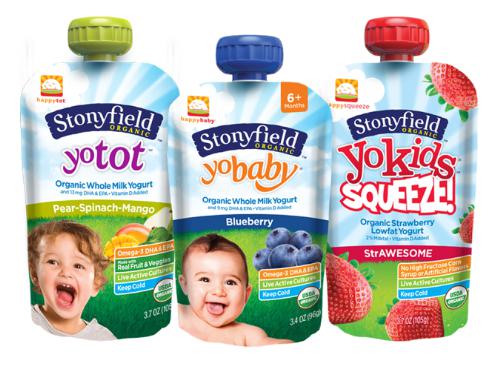 Babies between 6 and 12 months can enjoy a variety of foods. When they are able to bring their hands to their mouths and sit up in a high chair, they are able to eat a selection of finger foods. So, is it safe to give your baby cow milk or other different milk supplements? This is a question that is frequently asked by many moms about cow milk for babies. Read on and find out the answer.
Babies between 6 and 12 months can enjoy a variety of foods. When they are able to bring their hands to their mouths and sit up in a high chair, they are able to eat a selection of finger foods. So, is it safe to give your baby cow milk or other different milk supplements? This is a question that is frequently asked by many moms about cow milk for babies. Read on and find out the answer.
When Can My Baby Have Cow Milk?
 You can feed your baby with the first cup of whole milk once they have turned one year old. You may find it hard for babies to handle the extra proteins, minerals and sodium that are contained in whole cow milk. It is therefore advised that you wait until your baby celebrates their first birthday. Once they are 1 year old, introduce whole milk in a small cup during snack or dinner time. Most children enjoy the treat once they taste the milk.
You can feed your baby with the first cup of whole milk once they have turned one year old. You may find it hard for babies to handle the extra proteins, minerals and sodium that are contained in whole cow milk. It is therefore advised that you wait until your baby celebrates their first birthday. Once they are 1 year old, introduce whole milk in a small cup during snack or dinner time. Most children enjoy the treat once they taste the milk.
However, it doesn’t mean that your baby’s taste buds are all ready for whole milk. There might be need for you to help your child acquire and accept the taste for whole milk, as formula and breast milk are usually sweeter. Below are some tips that can help you tempt your child into drinking cow milk:
- Mix it up. Serve whole cow milk blended with breast or formula milk so as to help your child get used to the different taste. Increase the amount of whole cow milk in the mix gradually.
- Sneak it in. You can use whole milk in cooked cereals instead of using water. You can also blend the milk in a smoothie or sneak the milk in mac, cheese, soups or mashed potatoes.
- Include milk as part of the cocktail hour. Most children prefer yummy and colorful food on their plate to plain white liquid in their cup. This means that your child will fill up on food, leaving no room for milk. Therefore, it is a good idea to give the babies a cup of milk an hour before they take their meal.
Why Can’t Babies Have Cow Milk Under 1 Year Old?
It is not a wonder that many moms who are ready to wean their children from the bottle or breast are eager to make the switch. When it comes to cow milk, you are better off not giving a young child cow milk until they are 12 months old. There are a number of reasons why you should do so:
- Lake of nutrients. Cow milk does not have all the nutrients that are required for baby development and growth in his first year, such as zinc and vitamin E.
- Your baby’s body does not have the ability to digest the proteins in cow milk. The proteins that are contained in cow’s milk may not be digested by your baby. If your baby takes cow’s milk too early, he may be at risk of developing an allergy to cow’s milk, even though it is rich in vitamin A, D and B vitamins.
- Your baby can develop iron deficiency. This is because babies younger than one year are not able to absorb the iron that is contained in cow’s milk fully. Your baby also runs the risk since there is very little iron that is contained in cow’s milk. In case your baby is allergic to the protein that is contained in cow’s milk, his intestines will be irritated. As a result, your baby will lose some bit of blood in his stool.
- Cow milk could overtax your baby’s kidneys. This is because there is more potassium, sodium and chloride contained in cow’s milk than your baby can process.
- Cow milk can cause allergies in some babies. The milk contains lactose, which is a healthy carbohydrate. Lactose intolerance might cause diarrhea, abdominal pain and bloating since children do not have the ability to digest the lactose that is contained in milk. Allergic proteins can irritate intestinal lining and get to the bloodstream. This might cause an allergic reaction like wheezing, running nose and a raised, sandpaper-like rush that is red in color on the cheeks.
To learn more about cow milk for babies, see the following video:
What to Feed Your Baby Instead
1. Breast Milk
 If your baby thrives on breast milk, it means that you need to come up with ways that allow you to nurse him more often. Children tend to play too much during the day and they can forget to eat. Take your child to a dark and quiet room twice a day and nurse him. At prescheduled times of the day, breastfeed your baby to sleep.
If your baby thrives on breast milk, it means that you need to come up with ways that allow you to nurse him more often. Children tend to play too much during the day and they can forget to eat. Take your child to a dark and quiet room twice a day and nurse him. At prescheduled times of the day, breastfeed your baby to sleep.
2. Iron Fortified Formula
Most babies will increase the duration and frequency of nursing so as to meet their needs. If your baby does not, try a formula that is enriched with iron fortified DHA/AA. Go for a brand that your baby’s doctor has recommended. If your child prefers cow’s milk to formula solutions, then feed her with one or two 8-ounce bottles of cow milk when she is about one year of age.
3. Cheese and Yogurt
There are some reasons introducing cheese and yogurt instead of cow milk as below:
- In cheese or yogurt, lactose is broken down. Milk proteins are already removed or to some extent limited. This makes cheese and yogurt easier to digest when compared to cow milk. People with milk protein allergy or lactose intolerance are, therefore, able to handle cheese and yogurt well.
- Yogurt is a wonderful way for your baby to get calcium. The bacterium in yogurt is good for the digestive system. It is also a good way for your baby to get fat that is needed during the first year of the baby.

